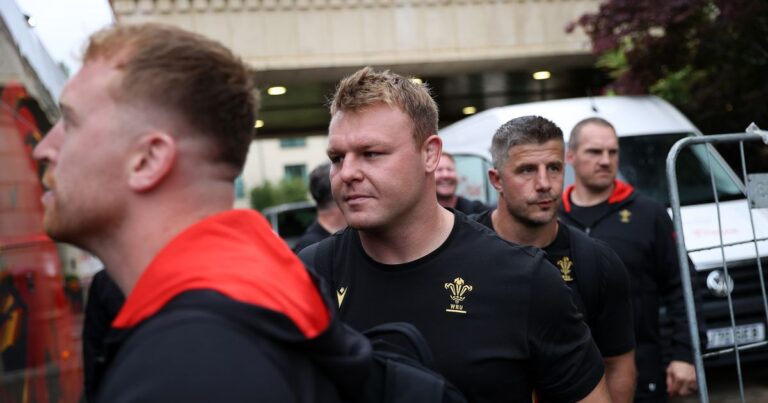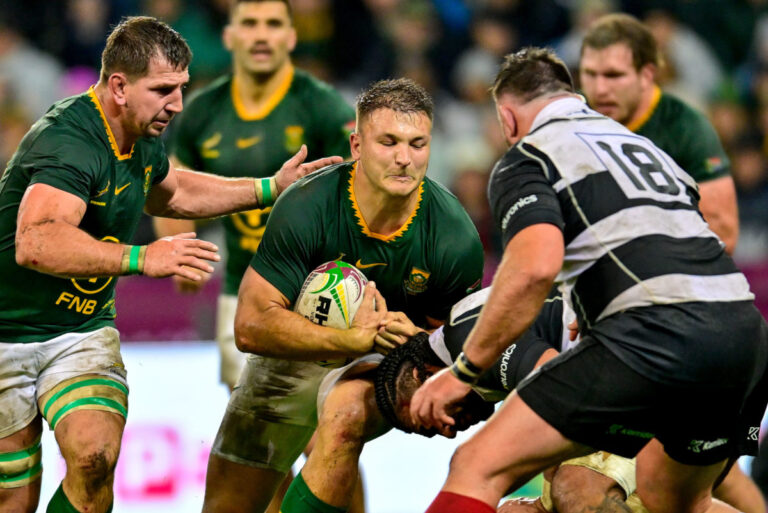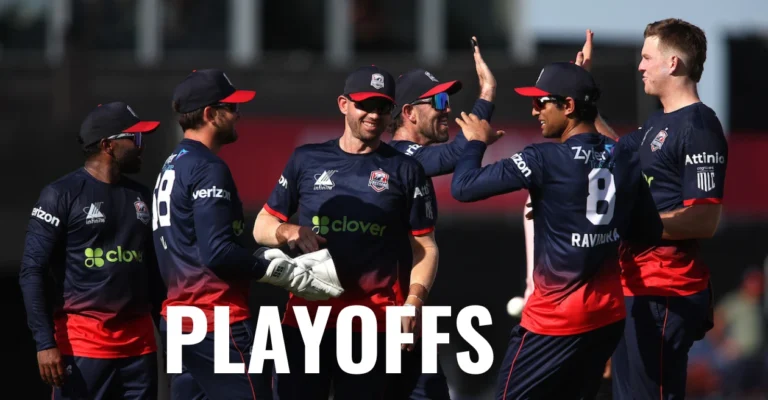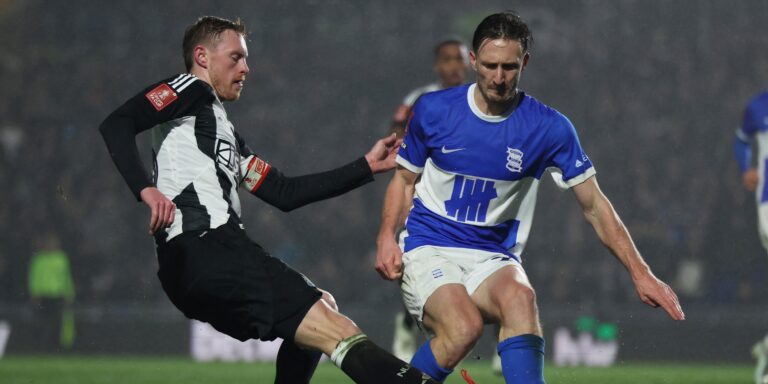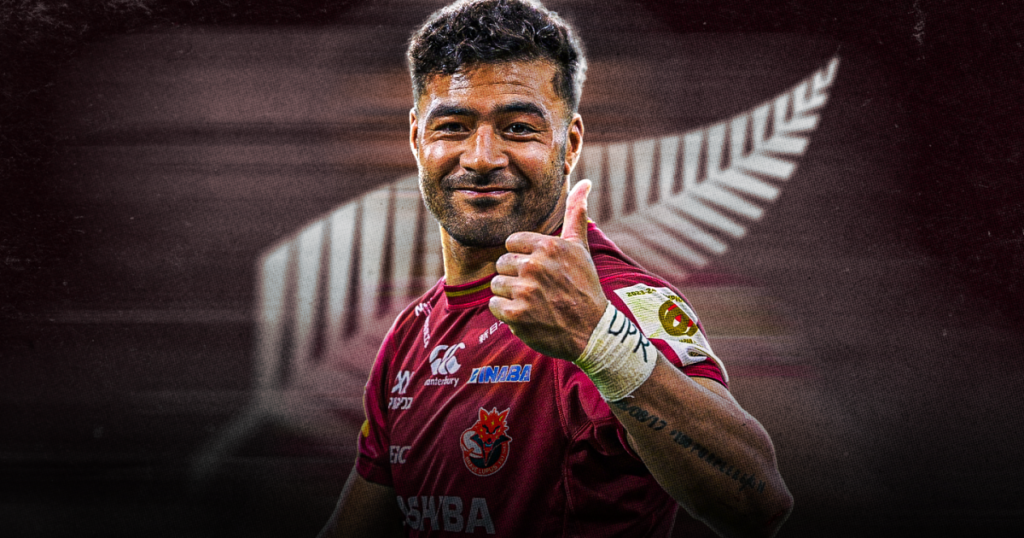
Statler & Waldorf they are emphatically not, but the two-man show featuring All Blacks head coach Scott Robertson and New Zealand Rugby CEO Mark Robinson has been just as entertaining as any double act in showbiz since they joined hands after the last World Cup.
The comedy gold tends to ignite from a barely-concealed divergence of attitude around the key topic of national eligibility. Should Kiwi players contracted to overseas clubs be available to the All Blacks? Since ‘Razor’ took over the reins in late 2023, he has been consistently open to the idea, and on occasion he has actively promoted it.
Robinson, on the other hand, tends to guard the castle of a watertight system which has served New Zealand so well for so very long. If you want to wear a silver fern on your chest, you need to be playing at home and contracted to one of the five Super Rugby franchises via the union. If you are not, the drawbridge is abruptly pulled up and the citadel is sealed.

Head coach and chief executive once again found themselves side by side, though not exactly on the same page on a recent edition of the Rugby Direct podcast. Razor took the opening swipe on the eligibility issue:
“You want all your best players available.
“That’s what it takes to win a Rugby World Cup. You keep connected with all of them; it doesn’t matter where they’re at.
“I still get messages from the old players checking in. Sam Cane has had his time but he’s a prime example. He’s asking how everything is going in the off-season.
“But yeah, you just want your best players.”
There is a quick nod to a recent retiree in Cane, but otherwise these comments sit somewhere between ‘open-minded to’, and ‘in favour of’ wider eligibility.
The player on Razor’s mind was his former 10 back in the good old Christchurch days, Richie Mo’unga, who has decided to see out his three-year deal with Toshiba Brave Lupus in Japan’s Top League. The earliest he can return home is midway through 2026, and that leaves him just 12 months and one full Super Rugby campaign to force his way back into the All Blacks squad.
Razor found more solid common ground with his CEO when he quoted Jordie Barrett’s recent successful sabbatical at Leinster.
“Jordie is an on-field coach so he will be learning massively [in Ireland],” Robertson said.
“That’s a prime example of keeping an open mind. We’re in a position now where he will come back as a better player and that’s what we want out of this. It’s worked. The essence is we’re keeping the integrity of all our pathway programmes.”
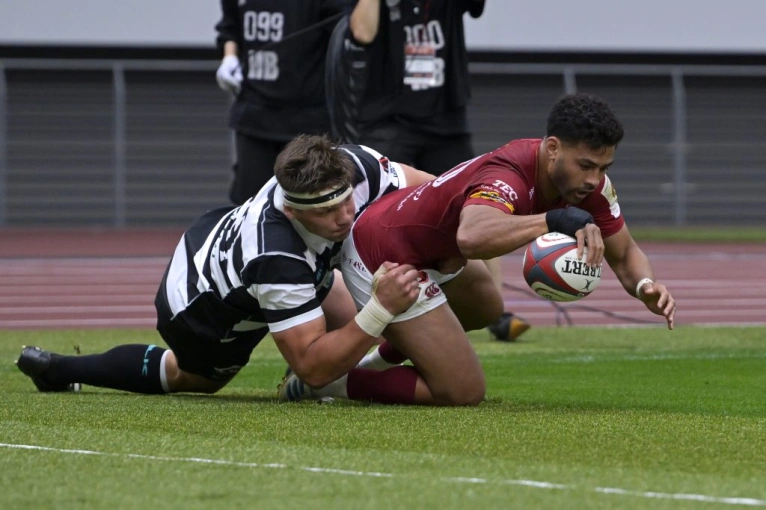
Even here, the distinction between sabbatical and overseas deal began to blur: “They’ve earned the opportunity; they’ve been loyal, they get to go away and come back.” In this respect, there is no difference between Jordie and Richie. Both have shown the essential loyalty for many years and earned the right to play abroad. It is just that Richie has also earned the wooden gladius of freedom and never has to fight in the coliseum again – at least, not unless he wants to. Richie Mo’unga has free will.
That freedom of choice is what sticks in Robinson’s craw.
“Clearly people understand there were conversations through last year, but ultimately Richie has made a decision to work to the obligations under his contract,” he said. “We respect that and we’re moving forward.
“We’re really clear on our eligibility rules. We always respect players who have left the All Blacks and are playing offshore.
“There’s always a degree of contact, but that’s good coaches and good people doing their jobs properly. That happens with players that are past their playing careers. That’s the nature of the All Blacks. We’re clearly moving forward and have a lot of belief in the people coming through and the protocol we have in place.”
The words may be similar to Robertson’s, but the underlying attitude is the opposite of ‘earning the right to go away and come back’. The tone of voice suggests once you burn your contractual boats, it is impossible to build a bridge back to your homeland. Someone like Mo’unga is yesterday’s news. You may get respect, but you will not get another chance.
It leaves New Zealand rugby in something of a quandary when a player such as Mo’unga is still so obviously near the peak of his powers but plying his trade elsewhere. The 31-year-old pivot received his second straight Japan Rugby League One ‘most valuable player’ award last Monday, the day after leading his club to back-to-back Top League titles. To cap it off, he was named man of the match in the Brave Lupus’ 18-13 win over the Kubota Spears in Tokyo’s national stadium.
He did it with one arm tied behind his back, or at least heavily strapped. Mo’unga had broken his right hand in the semi-final one week previously, and his coach Todd Blackadder had openly admitted it was short odds, “70-30” on him missing the final. But the star spent three days in an oxygen chamber to accelerate his recovery, and he had no doubts at all: “I knew all along I was going to play. Obviously [it is] a final, it’s a no-brainer really. You want to give yourself the best chance to be part of something special.”
That vocabulary is as far from the mindset of the washed-up or ‘past your best’ as it is possible to be. They are the words of a gladiator still enjoying his prime, and determined to squeeze every last drop of juice from the moment. The ultimate outcome is Mo’unga now has his second Top League crown to add to seven championships with the Crusaders, and he has won silverware in every season since 2017. The trophy cabinet is bulging.
The final offered ample illustrations Mo’unga was going to be as combative as ever where it mattered for a 10 – broken hand or not. He made a statement of intent as early as the eighth minute.
After three phases into midfield, Mo’unga is ready to call the play back to the short-side, standing up the big forward opposite with his vintage stutter step, and unafraid to take heavy contact as he plunges for the try line.
The Toshiba fly-half’s direct antagonist in the final was ex-Wallaby pivot Bernard Foley, and Mo’unga lost nothing in the comparison. Quite the opposite. One of the key differences was the way in which his positioning and quality of pass consistently brought the right shape to the Brave Lupus attack, like a sleek racer slipping into high gear.


Mo’unga is just that little bit closer to the forward pod in front of him, that little bit better connected than Foley. He can take the pull-back pass and accelerate into a gap outside, and he is bringing the attacking line closer to the defence and cutting down their reaction time. The ex-Waratah is committed to a more lateral line and does not pose the same immediate threat.
The small details have a big cascade effect in practice.
Mo’unga is probably a couple of metres further upfield than Foley would be when the ball is dropped out of the forward pod, and his shoulders are facing square up the pitch towards the posts. The defence is automatically narrowed and the last defender is forced to account for Mo’unga a moment earlier in the first instance.
The exquisite timing and angles of Mo’unga’s runs from behind the front line caused problems for the Kubota defence throughout the game.
Even aside from the fluency of his passing off either hand, it is Mo’unga’s superbly intuitive technique, and the illusion of ‘time on the ball’ it creates which sets him apart from the chasing pack of 10s, wherever in the world they may be.
The shoulders are always ‘north-south’ and as square to the target as possible, and the ball is on both hands just before the moment of impact, giving the attack as much forward momentum and flexibility as possible.
Negotiations may have been tried, and it appears they have failed to bring Mo’unga back to New Zealand in time for the huge three-Test series against France in July. If that is the case, NZR should try, then try again until they succeed, because a talent as special as Mounga’s is too good to waste.
This is no washed-up has-been seeking to improve his pension plan in some easy far corner of planet rugby, it is a player still near the peak of his powers and marked by his resilience in the face of adversity.
Mo’unga was one of six Kiwis helping Toshiba Brave Lupus defend its title. Like the playmaker, flanker Shannon Frizell was a current All Black when he left home shores, and both looked in excellent physical and mental trim at the weekend, well able to handle a level of rugby far beyond those events in Tokyo. The wooden sword has been raised: now it is time for NZR to meet the challenge. As Justin Marshall would now roar: are you not entertained?

